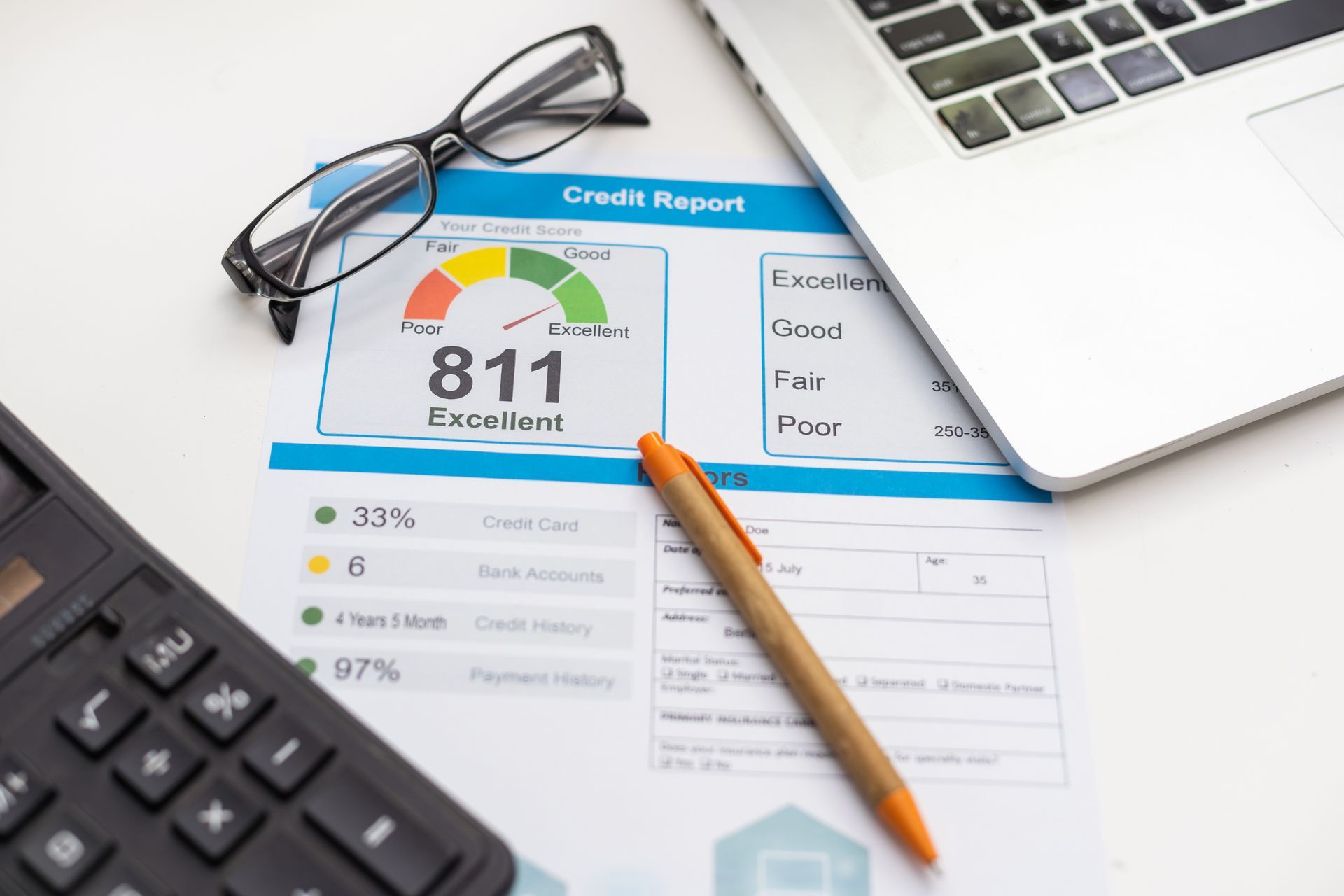Why Your Credit Score Matters When Buying a Home

Buying a home is one of the most significant financial milestones in a person's life—and in 2025, with evolving market conditions and lending standards, your credit score will play a more important role than ever. Whether you're a first-time buyer in Sacramento or someone looking to upgrade or downsize, understanding how to improve your credit score can be the key to securing the best interest rates, lowest fees, and most favorable loan terms.
In this blog post, we’ll walk you through everything you need to know about credit scores, why they matter, how to improve them, and what timeline to follow if you're planning to buy a home in 2025. We'll also address specific tools and strategies relevant to today's market and offer tips tailored for Sacramento homebuyers.
Why Your Credit Score Matters When Buying a Home
Your credit score is a reflection of your creditworthiness, and mortgage lenders rely heavily on it to determine:
- Whether they’ll approve your loan
- How much they’ll lend you
- What interest rate you’ll receive
- The down payment requirements
The Higher the Score, the Better the Terms
Here’s a general breakdown of how credit scores affect home loan options:
Credit Score Loan Type Loan Terms
760+ Excellent Best rates, lowest costs
700–759 Good Competitive rates
660–699 Fair Acceptable, may pay more
620–659 Poor Higher rates, fewer options
Below 620 Very poor Likely to be denied or need subprime loan
For conventional loans, most lenders look for a minimum score of 620–640, while FHA loans (which are common for first-time buyers) require a minimum of 580 with 3.5% down or 500 with 10% down.
How to Improve Your Credit Score Before Buying a Home in 2025
1. Know Where You Stand
Start by checking your credit report from the three major credit bureaus:
- Experian
- Equifax
- TransUnion
You’re entitled to one free credit report per bureau per year via AnnualCreditReport.com.
Look for:
- Errors or inaccuracies
- Old accounts that should be removed
- Late payments that can be disputed
Pro tip: Monitor your credit regularly with a free app like Credit Karma or your bank’s credit monitoring tool.
2. Pay Down Credit Card Debt
Your credit utilization ratio—how much credit you're using compared to your total limit—should ideally be below 30%. The lower, the better.
If your credit limit is $10,000 and you're using $4,000, your utilization rate is 40%, which may hurt your score. Try to:
- Pay off balances aggressively
- Avoid large new purchases
- Ask for a credit limit increase (without increasing spending)
3. Make All Payments on Time
Your payment history accounts for 35% of your credit score. Set up automatic payments or reminders to ensure every bill is paid on time, especially:
- Credit cards
- Student loans
- Auto loans
- Utility bills (some may be reported)
Even one late payment can damage your score for up to 7 years.
4. Avoid Opening New Credit Accounts
Each time you apply for credit, a hard inquiry appears on your report, which can drop your score by a few points. Avoid applying for:
- New credit cards
- Auto loans
- Retail credit promotions
Multiple inquiries over a short period can signal financial distress to lenders.
5. Keep Old Accounts Open
The length of your credit history contributes to your score. Don’t close old credit card accounts, even if you're not using them regularly. These accounts help improve your average account age and available credit.
6. Handle Collections or Charge-Offs
If you have accounts in collections, negotiate a pay-for-delete agreement, where the creditor agrees to remove the negative item from your report once paid. This can dramatically improve your score over time.
7. Become an Authorized User
If a family member or partner has a long-standing credit card with a good history, ask them to add you as an authorized user. This can boost your score quickly, even if you don’t use the card.
8. Use Credit-Building Tools
Some tools can help first-time buyers build credit responsibly:
- Secured credit cards
- Credit-builder loans
- Services like Experian Boost, which adds utility and rent payments to your credit file
Timeline: When Should You Start?
If you're planning to buy a home in 2025, start working on your credit NOW. Improvements can take 3–12 months to reflect on your credit report. Here's a rough timeline:
12–18 Months Out
- Check your credit reports
- Dispute errors
- Create a payoff plan
6–12 Months Out
- Reduce credit utilization
- Pay off high-interest debt
- Avoid new credit lines
3–6 Months Out
- Meet with a lender or mortgage broker
- Get prequalified
- Lock in savings for a down payment
1–3 Months Out
- Get pre-approved
- Shop for homes with a realtor
- Make offers with confidence
Local Perspective: Improving Credit as a Sacramento Buyer
Sacramento remains a competitive housing market with rising demand, especially from Bay Area transplants. Improving your credit score is critical if you want to:
- Secure a favorable interest rate
- Compete with all-cash or high-down-payment buyers
- Minimize closing costs
Working with the best realtor in Sacramento can also connect you with trusted lenders, credit experts, and resources tailored to the local market.
The Long-Term Value of Great Credit
A good credit score doesn’t just help you buy a home—it affects nearly every aspect of homeownership:
- Lower mortgage interest rates
- Smaller monthly payments
- Access to better refinancing terms
- Easier approval for home equity loans or lines of credit (HELOCs)
- Better terms for homeowner’s insurance
Final Thoughts
Improving your credit score to buy a home in 2025 is not just a financial move—it’s a lifestyle strategy. With discipline, planning, and the right guidance, you can position yourself for homeownership success, no matter where you are in your journey today.
If you're a first-time buyer, remember: knowledge is power, but action is everything. Start today, and by the time 2025 rolls around, you'll be mortgage-ready and one step closer to the keys to your new home.
Looking to Buy a Home in Sacramento in 2025?
Connect with the best realtor in Sacramento today. Whether you’re looking to buy, sell your house, or just explore your options as a first-time buyer, we’re here to guide you every step of the way—from improving your credit to closing your dream deal.




Is Sacramento Finally Becoming a Balanced Market? What a 3‑Month Supply Means for Buyers and Sellers




